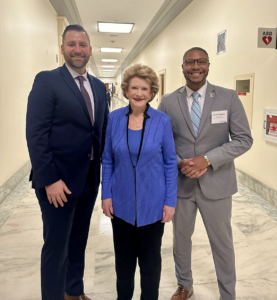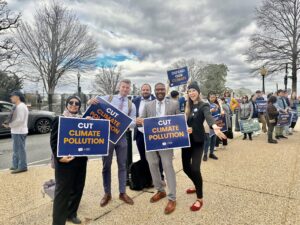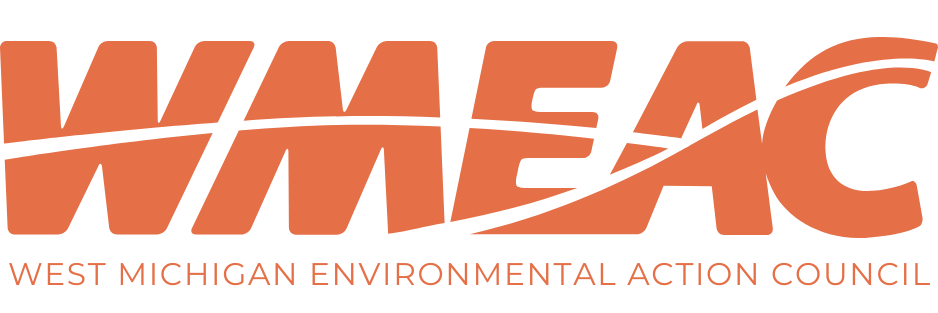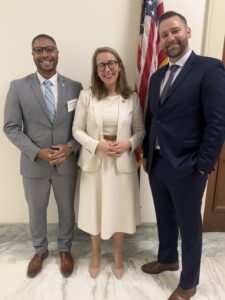By: Marshall Kilgore – WMEAC Director of Engagement
 Great Lakes Day 2024 served as a pivotal platform for engaging with Congress on vital environmental and climate matters, with a focus on safeguarding the Great Lakes ecosystem. The discussions underscored several critical points aimed at advocating for the protection and preservation of this invaluable natural resource.
Great Lakes Day 2024 served as a pivotal platform for engaging with Congress on vital environmental and climate matters, with a focus on safeguarding the Great Lakes ecosystem. The discussions underscored several critical points aimed at advocating for the protection and preservation of this invaluable natural resource.
The primary focus during the discussions was on advocating for the reauthorization of the Great Lakes Restoration Initiative (GLRI) (H.R. 7257/S. 3738) with a proposed budget of $450 million. This funding allocation is crucial for safeguarding Great Lakes fish and wildlife, supporting ecosystem restoration efforts, and combating invasive species like the invasive carp. The significance of this initiative cannot be overstated, as it is essential for maintaining the health and equilibrium of the Great Lakes region.
Additionally, conversations with Congress addressed the importance of rejecting decisions related to climate, environmental justice, and infrastructure investments under the Inflation Reduction Act (P.L. 117-169) to ensure sustainable and resilient practices in the Great Lakes area against the challenges posed by climate change and environmental degradation.

Moreover, a specific emphasis was placed on advocating for continued support for key investments in water infrastructure programs by the EPA. This includes funding for lead programs, such as the Reducing Lead in Drinking Water and Lead Mapping Pilot Programs, allocated at $200 million and $10 million, respectively. Furthermore, advocating for grant funding of $120 million to support small and disadvantaged communities highlights the commitment to ensuring access to clean and safe water for all individuals.
In addition to these key points, the importance of restoring and strengthening clean water and protections was highlighted during the discussions. This included supporting the establishment of drinking water standards for toxic PFAS, ensuring that dischargers adhere to limits under the Clean Water Act, and funding remediation efforts. This issue resonated strongly, particularly in West Michigan, where many are deeply concerned about water quality.
Furthermore, advocating for the passage of a Clean Water Farm Bill was emphasized, aiming to increase Farm Bill Conservation Funding and ensure that programs such as RCPP, EQIP, CSP, and CRP receive adequate support without any cuts to additional funding provided by the IRA. Collaborative agreements, such as the one spearheaded by WMEAC with the USDA focused on urban agriculture, underscore the importance of supporting local farmers and the positive outcomes that a robust farm bill can yield.
In conclusion, the discussions and advocacy efforts during Great Lakes Day 2024 highlighted the necessity of proactive engagement with Congress to address critical environmental issues, protect natural resources, and promote sustainable practices for the benefit of present and future generations.
Pictured Left: Marshall with Congresswoman Hillary Scholten, and Bentley Johnson, Federal Government Affairs Director for the Michigan League of Conservation Voters


